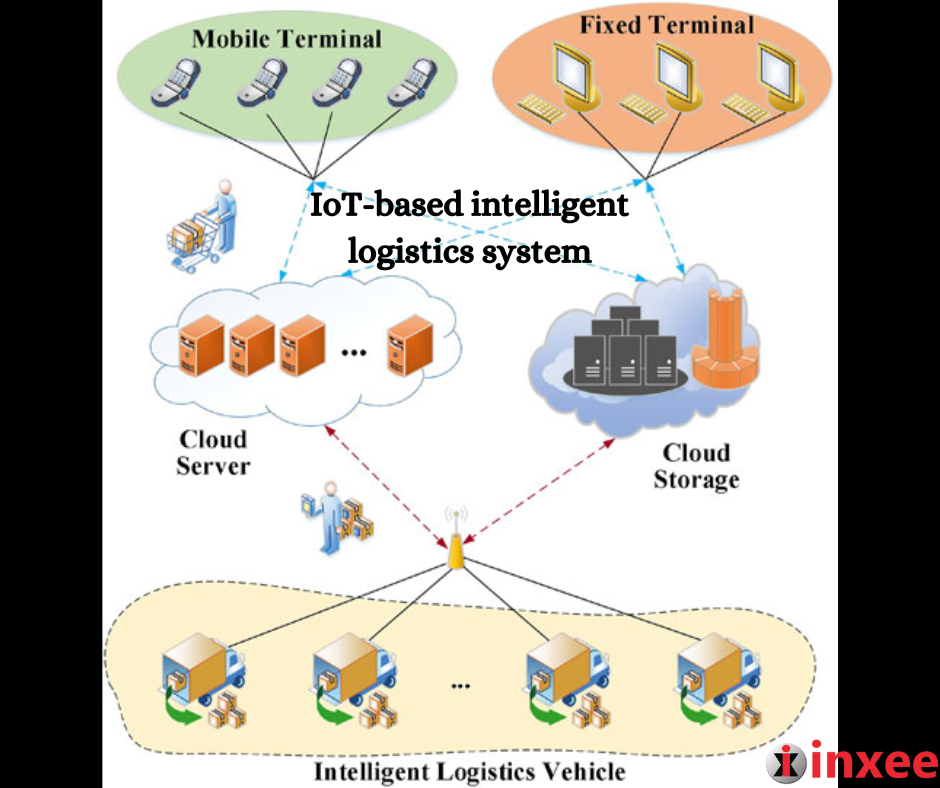July 11, 2023
5G, Artificial Intelligence (AI), cloud computing, Edge AI, edge computing, embedded systems, Industry 5.0, Internet of Things, IoT, IoT Devices, IoT System, Mobile Computing, Three Tier Architecture, Wearables, Wireless
No comments
IoT- Based Intelligent Logistics System
An IoT-based intelligent logistics system utilizes the power of Internet of Things (IoT) technology to enhance efficiency, visibility, and control in logistics operations. This system incorporates connected devices, sensors, and data analytics to optimize various aspects of the logistics process.
Key components of an IoT-based intelligent logistics system include:
- Connected Devices and Sensors: IoT devices and sensors are deployed throughout the logistics infrastructure to gather real-time data on factors such as location, temperature, humidity, and inventory levels. These devices can be attached to vehicles, cargo containers, storage facilities, and even individual products.
- Data Communication and Connectivity: The IoT devices communicate with each other and with a central network or cloud-based platform using wireless connectivity technologies such as cellular networks, Wi-Fi, or Low-Power Wide-Area Networks (LPWANs). This enables seamless data transmission and integration.
- Data Analytics and Predictive Analytics: The collected data is analyzed using advanced analytics techniques to extract valuable insights. Predictive analytics models can be employed to forecast demand, optimize routes, identify potential bottlenecks, and make data-driven decisions for improved operational efficiency.
- Real-Time Monitoring and Tracking: With IoT-enabled sensors and devices, logistics managers can track shipments, monitor vehicle performance, and ensure compliance with safety and quality standards in real time. This allows for proactive interventions and rapid response to any issues that arise during the logistics process.
- Supply Chain Visibility and Transparency: By integrating data from various sources and systems, an IoT-based intelligent logistics system provides end-to-end visibility across the supply chain. This enables stakeholders to monitor the status of shipments, track inventory levels, and ensure timely delivery.
- Automation and Optimization: IoT devices can automate certain tasks, such as inventory management and replenishment, by leveraging real-time data. Additionally, machine learning algorithms can be employed to optimize routes, improve load balancing, and reduce fuel consumption, leading to cost savings and environmental benefits.
By leveraging IoT technology, an intelligent logistics system brings enhanced visibility, efficiency, and control to the entire logistics process. It enables businesses to make data-driven decisions, reduce operational costs, improve customer satisfaction, and drive overall productivity and competitiveness in the logistics industry.










Leave a Reply